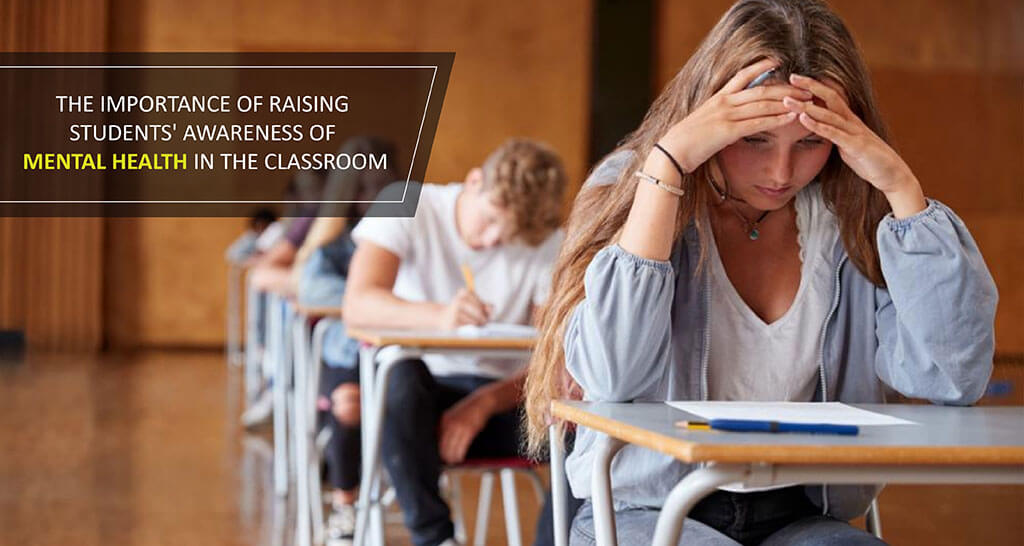Statistics show that 20% of teens may have an awareness of mental health conditions. Furthermore, 70% of children and adolescents do not get adequate mental health care at a young age.
Mental health problems are growing increasingly prevalent among children and adolescents. As a result, children and adolescents should be taught about awareness of mental health in school. There are various causes for this, and this article will examine them in further detail.
Mental Health Is Just as Important as Physical Health
We usually think of physical health when we hear “health.” Physical wellness is essential in our life. We must, however, consider mental wellness. To live a happy and healthy life, we must understand how mental and physical health interact. We can maintain our lives in balance when they operate together. To live a happy life while dealing with daily challenges, we must understand how to manage our mental health. This is something we can learn in school. Understanding the importance of mental health in children’s life helps them to grow into happy adults. Happy adults and functioning are better able to deal with life’s challenges.
Students’ mental health has an impact on their learning and achievement.
Few youngsters are aware that poor mental health may have an impact on learning and success. Children and adolescents who have mental health issues may struggle to study. They may also struggle to complete chores and concentrate. These youngsters are also more prone to have poor academic performance and miss school. Children and adolescents who have mental health issues are less likely to graduate. They also have a more challenging time enrolling and finishing postsecondary education.
Physical Health Is Affected
Poor mental health may harm our physical health and vice versa. However, many schools prioritize physical health education, emphasizing topics such as diet and exercise. Many youngsters are never taught how to manage their mental health. As a result, individuals are more likely to acquire undesirable physical issues as they age. Poor mental health, for example, might result in persistent weariness and sleeplessness. It may also cause increased inflammation and inappropriate stress hormone levels.
Social Media’s Influence on Society
When children begin using social media, they must understand mental health. Social media is critical in today’s society, particularly in the lives of young people. Children and teenagers acquire inappropriate ways to communicate, conduct, socialize, and connect on social media. Children’s mental health may suffer as they increasingly rely on social media. Children who use social media extensively are more likely to suffer from despair and anxiety. If students learn about mental health in school, they can make better social media decisions, lowering their chances of getting these problems.
Adolescent Relationship Development
Children and teenagers learn how to form connections in school. They form friendships and love connections and learn the fundamentals of relationship patterns. Many people have mental health problems when learning about relationships. When partnerships fail, some people experience anxiety and sadness. Failed or complex relationships often trigger these feelings. Adolescents cannot often cope with unpleasant feelings when relationships terminate. Building better connections will be made possible by teaching mental health in schools. When partnerships break, they will be better able to understand emotional and mental states and deal with them.
A school Is a Stressful Place.
Children and teenagers spend a lot of time in school, so it’s no wonder that it may be a stressful environment. Students must deal with examinations, assessments, and the formation and loss of friendships. They must also concentrate on their academic and professional careers. Children also face the burden of learning how to interact with those in positions of power. All of this stress might contribute to the development of mental health problems. Teaching youngsters how to handle stress helps prevent mental health disorders.
Increased Substance Abuse Risk
There is an absolute correlation between poor mental health and increased drug usage. Many individuals use drugs and alcohol to deal with their emotions. Children who learn about mental health at school will better cope with their emotions. Consequently, fewer young people will seek solace in drugs and alcohol.
Teachers and students should be aware of the warning signals of mental health issues. Schools must recognize the need to teach mental health. Teaching children and adolescents both mental and physical health leads to better results. Students’ mental health influences many aspects of their life, including their interactions with others and their use of drugs and alcohol. Children and teenagers who learn about mental health in school will do better in adulthood.










